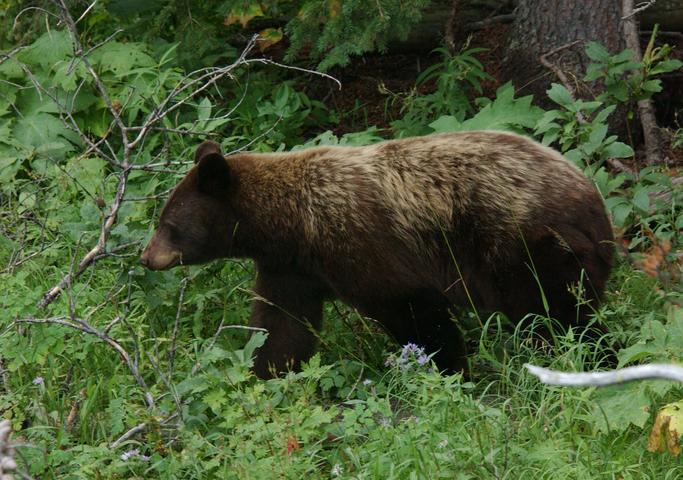
The avian flu has been linked to the deaths of a black bear and a mountain lion in Colorado in recent months, state officials announced Thursday, adding to a growing list of wildlife susceptible to the current strain of what is officially known as the highly pathogenic avian influenza.
In the case of the black bear in Huerfano County, Colorado Parks and Wildlife said a wildlife official euthanized it after it was found experiencing avian flu symptoms in October 2022. The bear suffered from seizures, lack of responsiveness to human presence and organ damage. The bear later tested positive for HPAI.
Last month, a mountain lion in Gunnison County was found dead outside of Gunnison city limits in an area is known for high mountain lion activity. A necropsy found that the cat had necrosis in the liver and pneumonia, typically found in domestic cats with avian flu.
A skunk in Weld county also tested positive for the virus in November 2022.
CPW officials said that in all three cases tests were conducted at Colorado State University in Fort Collins and the National Veterinary Services Laboratory in Ames, Iowa.
Officials noted that a number of other wildlife have been infected with the current strain, including foxes, bobcats, coyotes and raccoons. However, despite the variety of mammals susceptible to the avian flu, the number of cases is currently low.
It is believed that the animals may have contracted the avian flu after eating birds carrying the virus. Though not every mammal that eats an infected bird will develop the virus. It is also rare for some HPAI strains to infect people.
The avian flu is responsible for thousands of wild bird deaths in Colorado. The current strain of the avian flu was first reported in wild geese in March 2022 in Northeast Colorado.
The disease has also severely affected agriculture in the state. About 6.4 million chickens have been killed by the virus in order to prevent further spread, leading to empty shelves and higher egg prices at grocery stores this winter. Backyard chickens were deemed the most vulnerable to the virus because of free access to the outdoors.
Authorities say to avoid handling sick or dead birds and keep your distance from wildlife.








